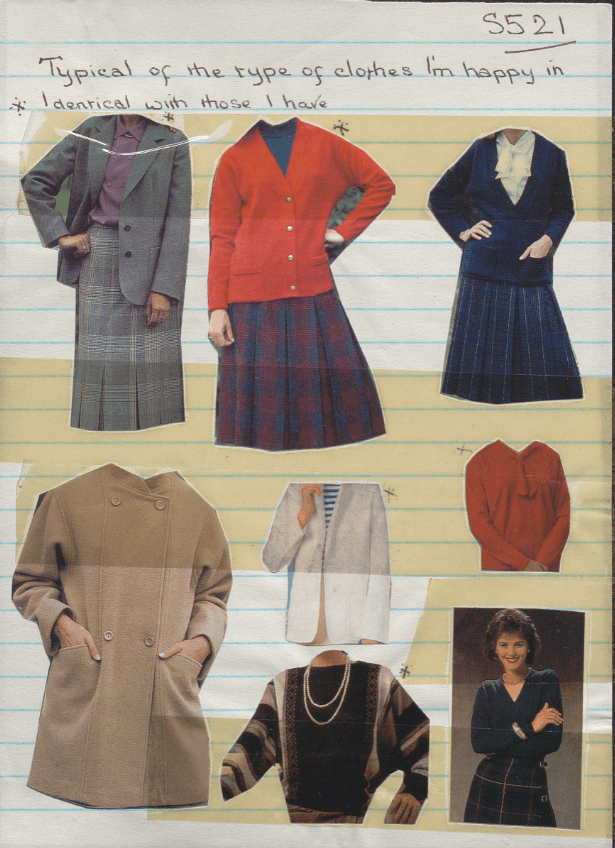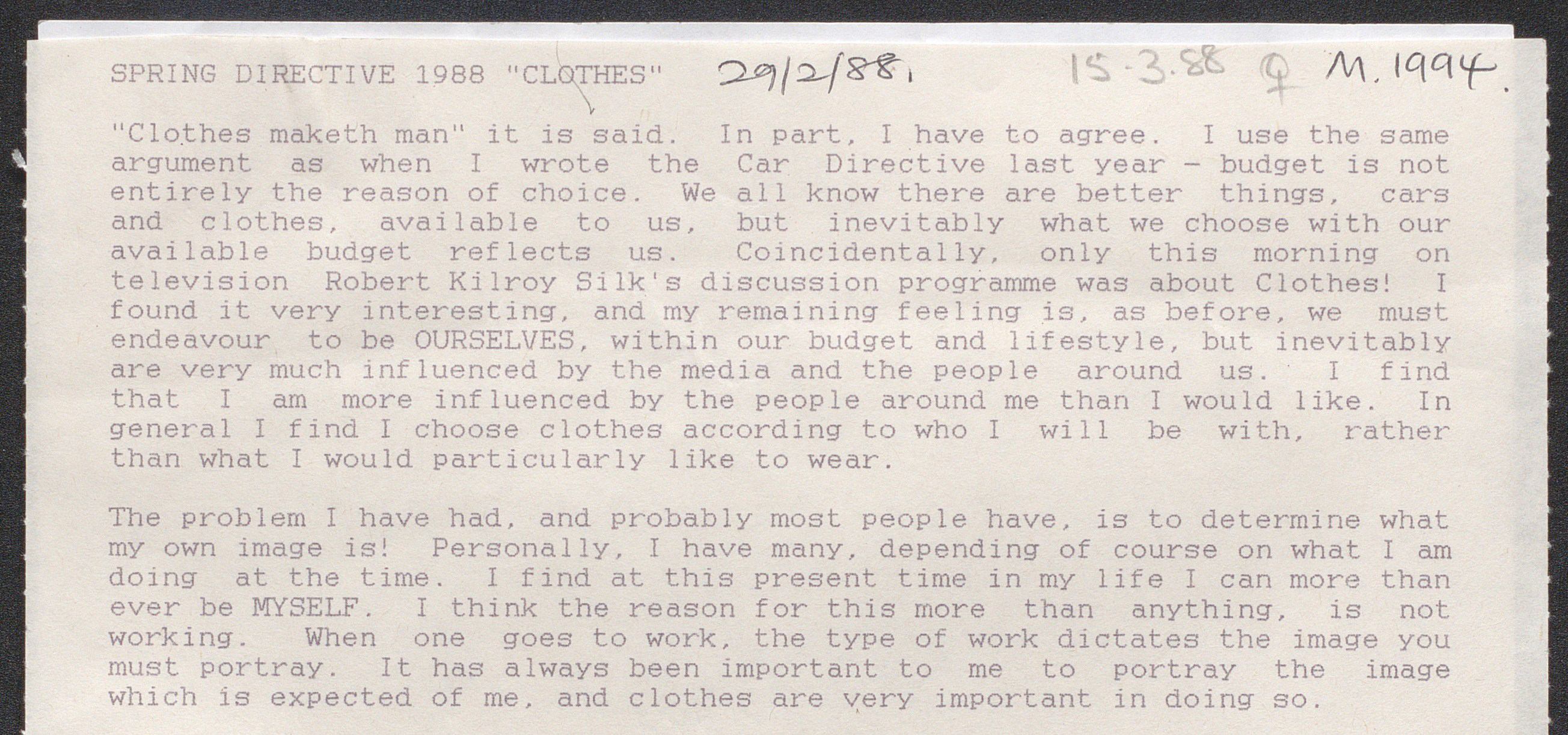‘“Clothes maketh man”… in part, I have to agree’: Clothing in the Mass Observation Project

In the age of Covid-19, those of us who are fortunate enough to be able to work from home have still had to deal with a minor, though recurrent, concern: what to wear after making the five-foot trek from bed to desk (or kitchen table, pile of cushions, etc). Do we dress as if we were at the office, do we laugh derisively at the idea of getting dressed at all, or do we aim, as the Independent urged us in April, befitting its centrist political stance, ‘for the sweet spot between workwear and PJs’? Clothes can be, after all, a significant reflection of our personal identity, regardless of the circumstances in which we find ourselves.
The participants in the Mass Observation Project, whose archive from the 1980s has just been released by Adam Matthew and which covers topics ranging from the Falklands War to European elections and gardening, were asked about their clothing in spring 1988. The requests started with ‘A complete inventory of every single item of clothing that you own’ and went on to cover maintenance of clothes, buying habits, one’s greatest sartorial mistakes and attitudes to other people’s clothes (‘what does ‘respectably dressed’ look like, what is ‘flash’? Be precise.’).

Responses came back in the chatty, exhaustive style which had become as characteristic of the observers’ writings as of the directives they were sent. Observer I1556 started with her inventory and finished 24 pages later with her thoughts on see-through clothing and the distinction between flashiness and vulgarity (‘same [as flashiness] only more so but less conscious & more honest’).
A25 was equally candid in his assessment of his personal style, responding to the question about care of his clothing with ‘I am a complete and utter slob and none of my clothes have ever been washed or ironed or repaired’ (though, intriguingly, he also admits to the ownership of 67 floral ties, ‘which I never wear’).
Of course, dilating on one’s style first requires knowing what it is. Observer M1994, a 43-year-old stay-at-home mother from Norfolk, tells us simultaneously that she appreciates freedom from the constraints of officewear and that she finds this freedom comes at a personal price:

She goes on to give examples of suitable dress for different occasions that might strike one as being oddly calibrated – I have never put on a jacket, for instance, to eat a takeaway:

In conclusion:

What does it mean, then, to be ourselves in this context? If the takeaway is for one, if Zoom is shut down and the webcam turned off (or covered with a floral tie), what do we choose to wear?
Certainly not (greatest mistake) the undyed linen waistcoat I bought when I was about 15 and knew, I think, walking out of the shop that I would never find an occasion to wear (and still haven’t). Still, at least I didn’t buy 67 of them.
Mass Observation Project is available now. For more information on this resource, including free trial access and price enquiries, please email us at info@amdigital.co.uk.
Recent posts

James Prinsep, the son of an East India Company merchant and government official, holds a notable place in Indian history for his work in the Indian Mint and standardising currency. Records from East India Company, module VII show how Prinsep, and the British-run East India Company more broadly, reshaped India’s currency to suit their economic and administrative needs.

Foreign Office, Consulate and Legation Files, China: 1830-1939 contains a huge variety of material touching on life in China through the eyes of the British representatives stationed there. Nick Jackson, Senior Editor at AM, looks at an example from this wealth of content, one diplomat’s exploration of Chinese family relationships and how this narrative presented them to a British audience.
